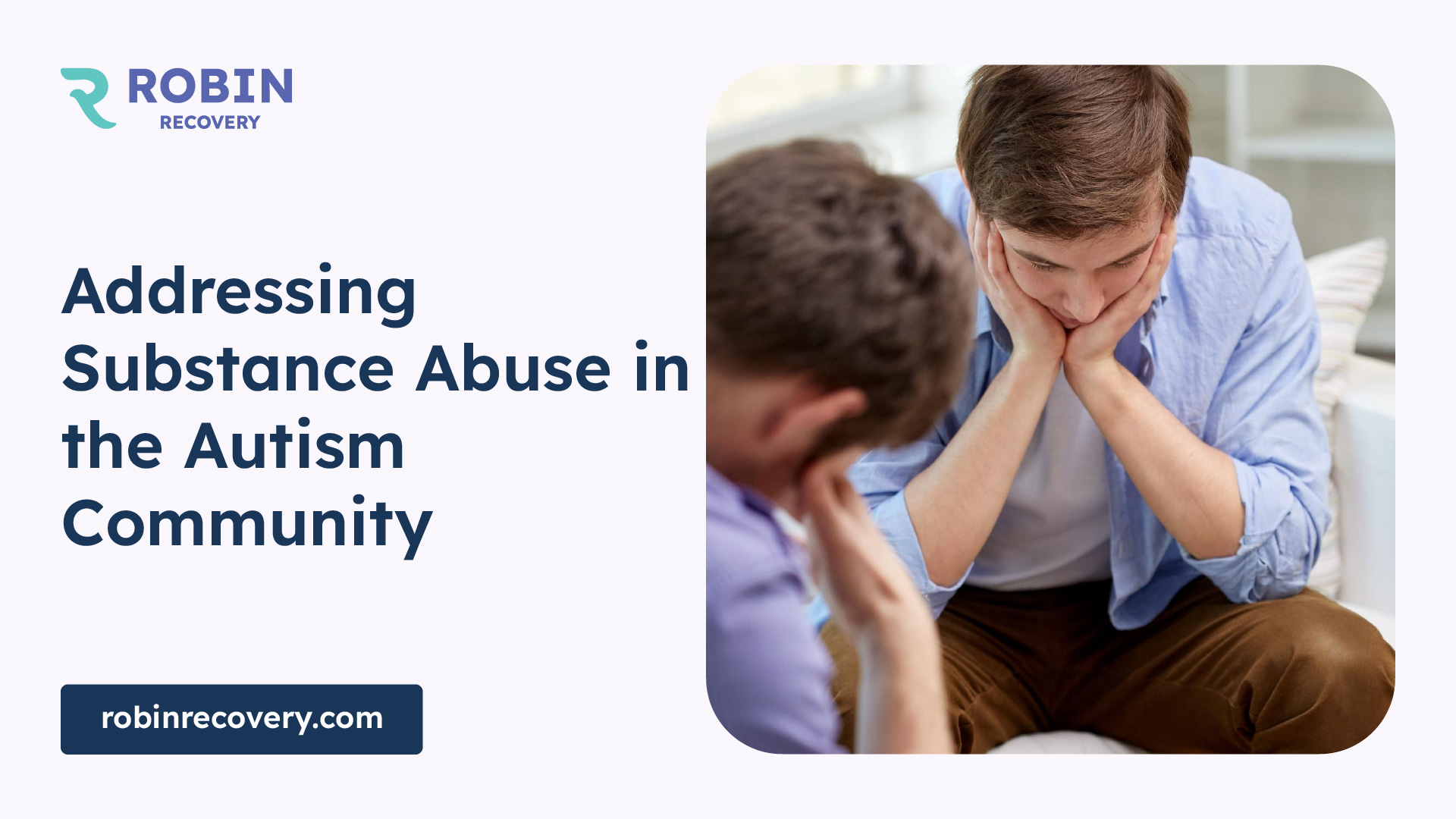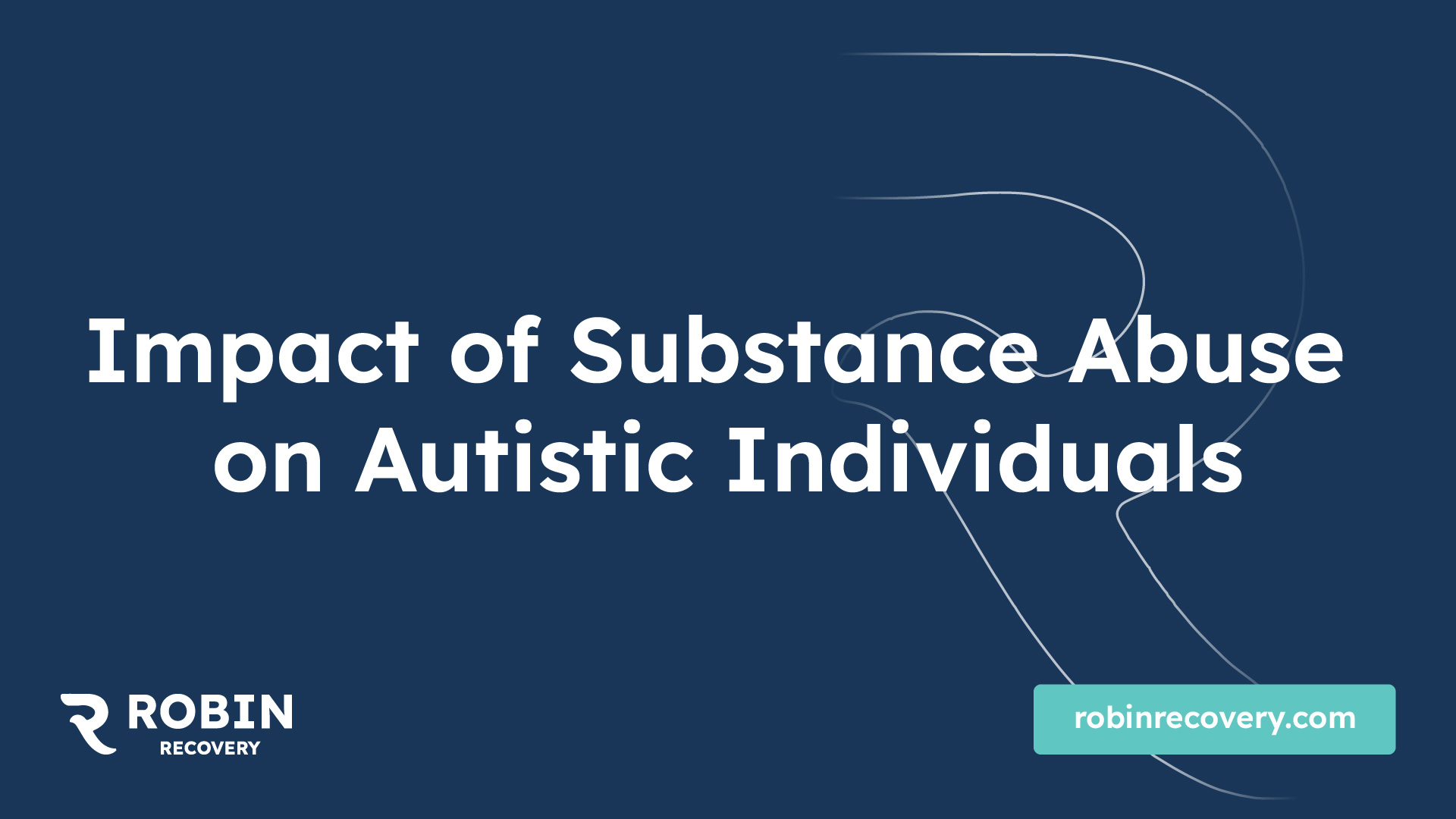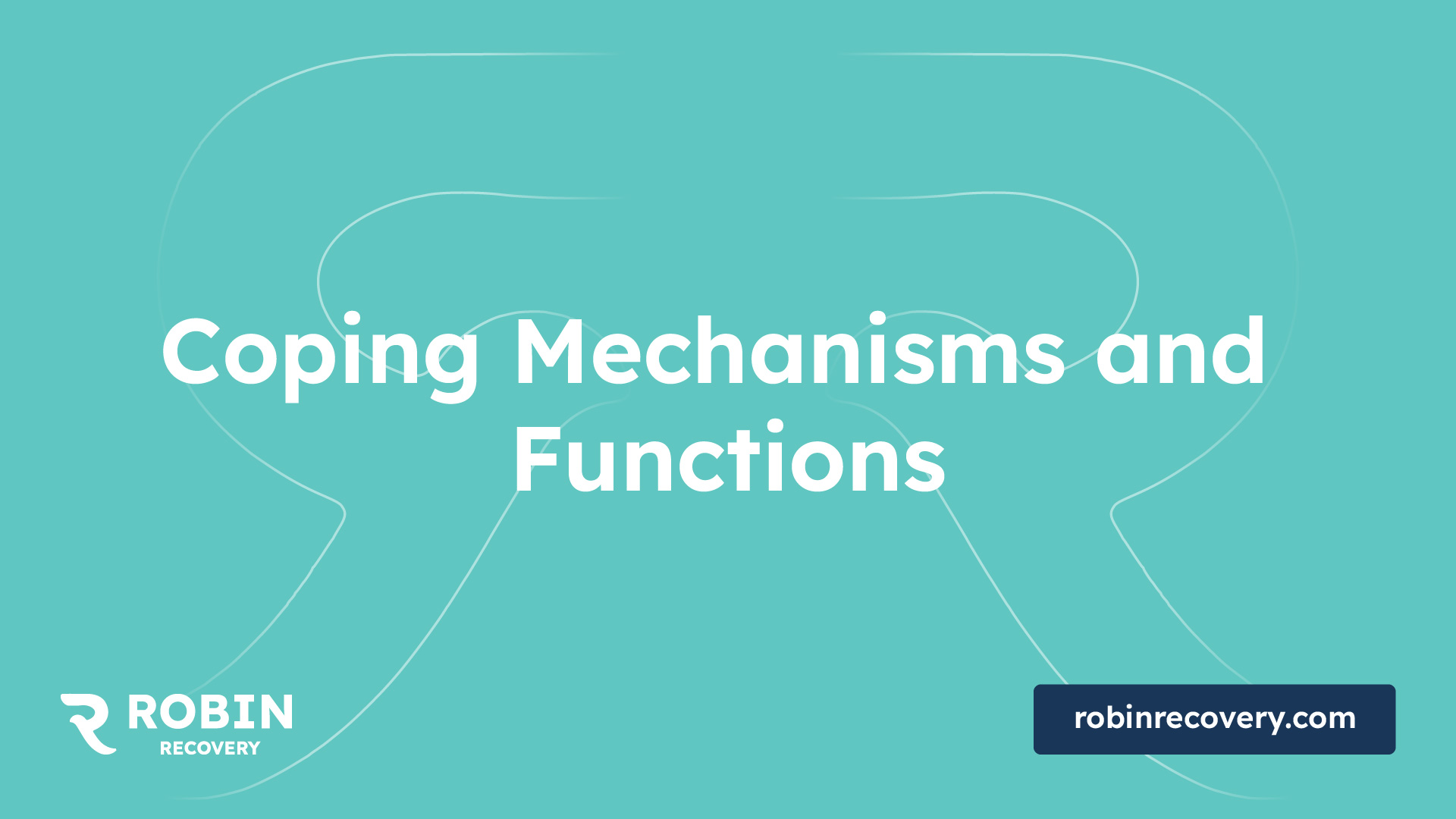Addressing Substance Abuse in the Autism Community


Understanding Substance Abuse in Autism
Substance abuse is a significant concern within the autism community. Autistic individuals are two to three times more likely to develop an addiction at some point in their lives, with common addictions including alcohol, marijuana, and prescription drugs. Understanding the link between autism and substance abuse, as well as the contributing factors, is crucial in addressing this issue.
Link Between Autism and Substance Abuse
Recent studies suggest that up to 36% of individuals with autism spectrum disorder (ASD) may have a co-occurring issue with substance abuse, contradicting the initial belief that symptoms of ASD protected individuals from developing substance abuse issues. Autistic individuals are less likely to use substances overall, but those who do are more likely to self-medicate for their mental health symptoms, such as autism-related symptoms, anxiety, depression, and suicidal thoughts. Autistic adolescents and adults were over three times more likely than others to report using substances to manage mental health symptoms, including anxiety, depression, and suicidal thoughts.
Factors Contributing to Substance Abuse in Autism
Various factors contribute to the increased risk of substance abuse in individuals with autism. These include:
- Self-medication: Autistic individuals may turn to substances as a form of self-medication to lower social inhibitions, decrease adverse side effects of their condition, or alleviate negative emotions like anxiety and depression. They may use substances as a way to cope with the challenges they face in social situations or to manage sensory sensitivities.
- Vulnerability: Autistic individuals are more vulnerable to substance use-related problems, such as dependence/addiction, using drugs to deal with past trauma, and substance use associated with suicide. They may have difficulties in understanding and navigating social situations, leading to increased susceptibility to negative influences and peer pressure.
- Co-occurring conditions: Co-occurring conditions, such as attention deficit hyperactivity disorder (ADHD) or intellectual disability, further increase the risk of substance use-related problems in individuals with autism. These additional challenges can compound the difficulties faced by autistic individuals and contribute to their vulnerability to substance abuse.
- Lack of support and understanding: Limited awareness and understanding of the unique needs and challenges faced by autistic individuals may result in inadequate support and intervention. This lack of support can contribute to feelings of isolation, frustration, and increased risk of substance abuse.
By understanding the link between autism and substance abuse, as well as the contributing factors involved, we can work towards developing effective strategies and interventions to address and prevent substance abuse in the autism community. In the following sections, we will explore the prevalence and risk factors of substance abuse in autistic individuals, as well as the impact of substance abuse on their overall well-being.
Prevalence and Risk Factors
Understanding the prevalence of substance abuse in the autism community is essential in addressing the unique challenges faced by individuals with autism spectrum disorder (ASD). While there is a wide variation in reported rates, recent studies have shed light on the co-occurrence of substance abuse and ASD.
Rates of Substance Abuse in Autistic Individuals
According to recent studies, the rates of substance abuse among individuals with ASD range from 1.3% to 36% [2]. The variation in prevalence is due to differences in study methods, making it challenging to determine a general prevalence rate. However, it is important to note that these rates contradict the initial belief that symptoms of ASD protected individuals from developing substance abuse issues [2].
A Swedish population-based cohort study found a relatively high prevalence of substance use-related problems in individuals with ASD, ranging from 0.7% to 36%. The risk of substance-related problems in patients with ASD was almost twofold compared to matched non-ASD controls, with comorbid ADHD increasing this risk further.
Risk Factors for Substance Abuse in Autism
Several risk factors contribute to the increased susceptibility of individuals with ASD to substance abuse. Autistic individuals are less likely to use substances overall, but those who do are more likely to self-medicate for their mental health symptoms, such as autism-related symptoms, anxiety, depression, and suicidal thoughts [3]. Autistic adolescents and adults were over three times more likely than others to report using substances to manage mental health symptoms and vulnerability associated with substance use.
Furthermore, relatives of individuals with ASD, including full siblings, half-siblings, and parents, show an increased risk of substance use-related problems, indicating a shared familial liability for these conditions [4]. Autistic individuals with comorbid attention deficit hyperactivity disorder (ADHD) or intellectual disability have a doubled risk of substance use-related problems compared to those without comorbidities. The risk is even higher among individuals with both ASD and ADHD.
Exploring these prevalence rates and risk factors provides valuable insight into the intersection between substance abuse and autism. By understanding the unique challenges faced by individuals with ASD, we can develop effective strategies for prevention, intervention, and support. To address substance abuse in the autism community, it is crucial to consider the impact it has on the quality of life of autistic individuals and the negative consequences associated with substance abuse, as discussed in the previous sections.

Impact of Substance Abuse on Autistic Individuals
Substance abuse can have a profound impact on the lives of individuals with autism. Understanding the quality of life issues and negative consequences associated with substance abuse in this population is crucial for addressing the unique challenges they face.
Quality of Life Issues
Substance use disorders (SUDs) significantly impact the quality of life for individuals with autism spectrum disorder (ASD). Research has shown that substance abuse in this population is associated with a range of negative outcomes, including accidents, mental health problems, premature death, violence, and suicide attempts [5]. The dysregulation caused by substance use can disrupt daily routines, trigger further substance use, and impair the ability to anticipate the consequences of behavior.
Furthermore, individuals with ASD have a substantially increased risk of substance use-related problems compared to their non-autistic peers. They are at a higher risk for drug use disorder, alcohol use disorder, and tobacco use disorder. Autistic individuals may also be more likely to use recreational drugs as a form of self-medication for their mental health symptoms, such as anxiety, depression, and suicidal thoughts.
Negative Consequences of Substance Abuse
The negative consequences of substance abuse in autistic individuals can be far-reaching. They may experience physical, psychological, and social repercussions as a result of their substance use. Some of the negative consequences include:
- Increased vulnerability: Autistic individuals are more likely to report vulnerability associated with substance use, such as dependence/addiction, using drugs to cope with past trauma, and substance use associated with suicide. They are also more likely to be forced, tricked, or accidentally take drugs and start using substances at a younger age. This vulnerability puts them at a higher risk for further harm.
- Health complications: Substance abuse can lead to various somatic diseases and health problems linked to alcohol misuse. Autistic individuals with co-occurring substance use disorders are at a higher risk of experiencing substance-related crime, disease, and death [4]. These health complications can further decrease their overall well-being.
- Impaired daily functioning: Substance use disorders disrupt daily life routines, impair social interactions, and hinder the ability to engage in meaningful activities. Autistic individuals may struggle to maintain employment, relationships, and overall stability due to the negative impact of substance abuse.
Understanding the impact of substance abuse on autistic individuals is critical for developing effective interventions and support systems. By recognizing the quality of life issues and negative consequences associated with substance abuse in this population, professionals and caregivers can work towards providing appropriate treatment and resources to address the unique needs of individuals with autism.
Treatment Approaches
When addressing substance abuse in individuals with autism, it is crucial to implement effective treatment approaches that consider the unique needs and challenges of this population. Two notable treatment approaches for co-occurring substance use disorder (SUD) and autism are cognitive behavioral therapy (CBT) and group interventions.
Cognitive Behavioral Therapy (CBT) for Co-occurring SUD
Cognitive Behavioral Therapy (CBT) has shown promise in treating co-occurring SUD in individuals with autism. A group treatment based on CBT for patients with autism and co-occurring SUD demonstrated positive outcomes. After completing the intervention, participants reported lower levels of alcohol use, craving, passive coping styles, depression, anxiety, and stress symptoms. These effects were even more pronounced at the 3-month follow-up. The CBT approach in this group setting emphasizes identifying and modifying maladaptive thoughts and behaviors related to substance use.
The study also found that CBT group interventions for individuals with autism and co-occurring SUD resulted in reduced alcohol and drug use, decreased craving, a shift from passive to active coping styles, increased control over life, and reduced symptoms of depression, anxiety, and stress. These positive outcomes highlight the potential of CBT in helping individuals with autism overcome substance abuse issues.
Group Interventions for ASD and SUD
Group interventions tailored for individuals with autism and co-occurring SUD have shown promise in addressing substance abuse. Autistic individuals often face unique challenges in traditional addiction treatment settings, and group interventions offer a supportive and understanding environment that caters to their specific needs.
A study by Helverschou and colleagues (2019) emphasized the importance of accommodating the characteristics of autism in group sessions and providing regular staff education on autism [6]. These interventions aim to enhance the treatment experience for individuals with autism by developing strategies that foster engagement, social skills, and meaningful connections with peers. Group interventions provide a platform for individuals to share their experiences, learn from others, and develop coping strategies specific to their needs.
By addressing the social difficulties that individuals with autism may face, group interventions can help reduce feelings of isolation and increase the likelihood of successful outcomes. Offering these interventions in a safe and supportive environment can empower individuals with autism to actively participate in their recovery journey.
It's important to note that substance abuse treatment for individuals with autism requires a comprehensive approach that considers the specific challenges and needs of this population. The integration of evidence-based therapies, such as CBT, and the implementation of group interventions tailored to the characteristics of autism can significantly contribute to positive treatment outcomes. Further research and ongoing education are needed to continually improve treatment approaches and provide effective support for individuals with autism and co-occurring SUD.

Coping Mechanisms and Functions
For some autistic individuals, substance use can serve as a coping mechanism to address various challenges they face on a daily basis. Understanding the functions of substance use in the context of autism is crucial in order to develop effective strategies for prevention and intervention.
Functions of Substance Use in Autistic Individuals
Autistic individuals may turn to substances as a form of self-medication to lower social inhibitions, decrease adverse side effects of their condition, or alleviate negative emotions like anxiety and depression [1]. Socializing and fitting in with peer groups can be challenging for autistic individuals, and they may consume drugs or alcohol to reduce social inhibitions, alleviate social anxiety, or feel a sense of belonging. In fact, autistic adults were nearly nine times more likely than their non-autistic peers to report using recreational drugs for managing unwanted symptoms.
Some common functions of substance use reported by individuals with autism and co-occurring substance use disorders (SUDs) include:
- Temporarily forgetting problems
- Coping with social difficulties
- Filling spare time
- Dealing with frustration and stress
- Reducing anxiety and depression
These functions highlight the complex interplay between the challenges faced by autistic individuals and their substance use behaviors. However, it is important to note that substance use as a coping mechanism can have serious negative consequences on individuals' lives.
Impact of Substance Use Disorders on Daily Life
Substance use disorders (SUDs) have a significant impact on the daily lives of individuals with autism. These disorders can lead to a range of negative consequences and impairments, affecting their overall well-being and quality of life.
Studies have shown that individuals with autism and co-occurring SUDs are at a higher risk of experiencing accidents, mental health problems, premature death, violence, and suicide attempts. Substance use can dysregulate daily routines, trigger further substance use, and impair the ability to anticipate the consequences of behavior.
Autistic individuals who engage in substance use are more vulnerable to dependence/addiction, using drugs to cope with past trauma, and substance use associated with suicide. They are also more likely to report being forced, tricked, or accidentally taking drugs, as well as childhood use of substances at a young age [3].
Understanding the impact of substance use disorders on daily life is crucial for developing targeted interventions and support systems to address the specific needs of autistic individuals who struggle with substance abuse.
By recognizing the functions of substance use in autistic individuals and the negative consequences associated with substance use disorders, we can work towards empowering change and providing effective treatment options for individuals within the autism community.
Recommendations and Future Research
As our understanding of the relationship between autism and substance abuse grows, there is a need for additional research to further explore this complex issue. More comprehensive studies using consistent methods are required to better understand the risk and protective factors associated with substance abuse in individuals with autism spectrum disorder (ASD), as well as to determine the prevalence of substance abuse in this population.
Need for Additional Research
Key areas for future research include:
- Risk and Protective Factors: Further investigation is needed to identify the specific risk factors that contribute to substance abuse in individuals with ASD. Understanding these factors can help develop targeted prevention strategies and interventions.
- Prevalence: The prevalence of substance abuse in the autism community requires more comprehensive and accurate assessment. Additional studies are needed to determine the extent of substance abuse in individuals with ASD, taking into account various demographic and clinical factors.
- Treatment Efficacy: Research should focus on evaluating the effectiveness of different treatment approaches for individuals with ASD and co-occurring substance use disorder (SUD). This includes examining the outcomes of specific interventions and identifying the most beneficial therapeutic techniques.
- Therapist Training: Studies should investigate the impact of providing autism-specific training to drug and alcohol therapists. Enhancing their knowledge and understanding of ASD can lead to improved treatment outcomes and better support for autistic individuals seeking help for substance abuse [6].
- Individualized Interventions: Research should explore the development of individualized interventions that accommodate the unique characteristics and needs of autistic individuals. Tailoring treatment approaches can enhance engagement and improve outcomes.
- Vulnerabilities and Co-occurring Challenges: Further investigation is necessary to understand the vulnerabilities associated with substance use in autistic individuals. Research should focus on the links between substance abuse, mental health challenges, trauma, and suicidal ideation.
Recommendations for Addressing Substance Abuse in Autism
Based on current knowledge and existing research, here are some recommendations for addressing substance abuse in individuals with autism:
- Early Education and Prevention: Implement targeted educational programs aimed at promoting awareness of substance abuse risks and prevention strategies among autistic individuals, their families, and caregivers.
- Screening and Assessment: Incorporate routine screening for substance abuse and related mental health issues in autism evaluations and assessments. Early identification can lead to timely interventions and support.
- Tailored Interventions: Develop individualized treatment approaches that consider the unique needs and characteristics of autistic individuals. This may involve adapting evidence-based interventions to accommodate sensory sensitivities, communication differences, and executive functioning challenges.
- Therapist Training: Provide specialized training for therapists and healthcare professionals in understanding autism and delivering effective interventions for individuals with ASD and co-occurring SUD.
- Support Networks: Foster support networks and peer support programs specifically designed for autistic individuals with substance abuse concerns. These networks can provide a sense of community, understanding, and guidance throughout the recovery process.
- Collaboration and Coordination: Promote collaboration between autism service providers, substance abuse treatment centers, and mental health professionals to ensure a holistic approach to care. Coordinated efforts can lead to improved outcomes and more comprehensive support.
By implementing these recommendations and conducting further research, we can empower change and improve the understanding, prevention, and treatment of substance abuse in the autism community.
References
[1]: https://www.addictionhelp.com/addiction/autism/
[2]: https://pubmed.ncbi.nlm.nih.gov/32429819/
[3]: https://www.cam.ac.uk/research/news/autistic-individuals-may-be-more-likely-to-use-recreational-drugs-to-self-medicate-their-mental
[4]: https://www.ncbi.nlm.nih.gov/pmc/articles/PMC5222913/
[5]: https://www.ncbi.nlm.nih.gov/pmc/articles/PMC9019324/
[6]: https://attwoodandgarnettevents.com/autism-and-substance-addiction/
